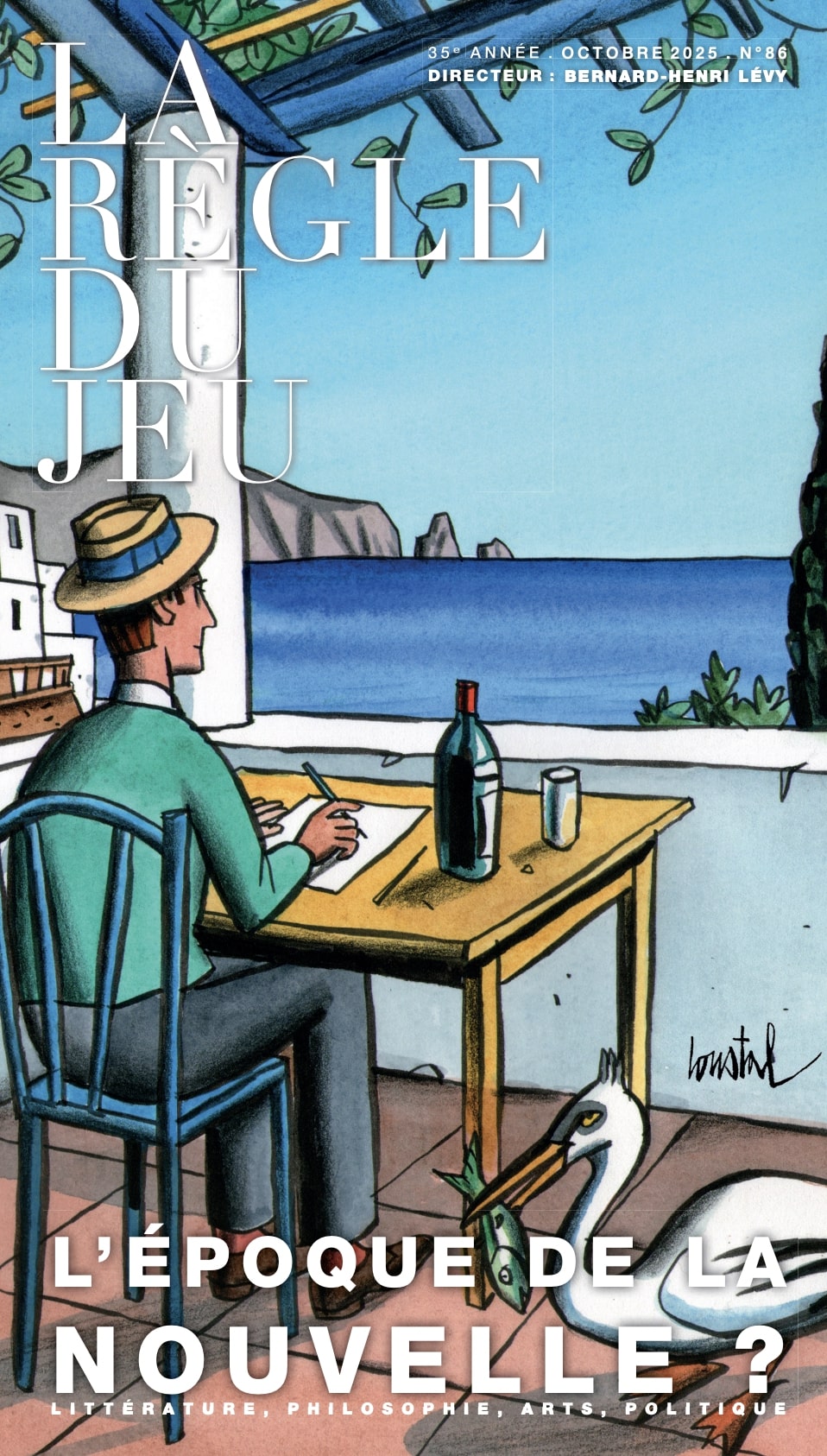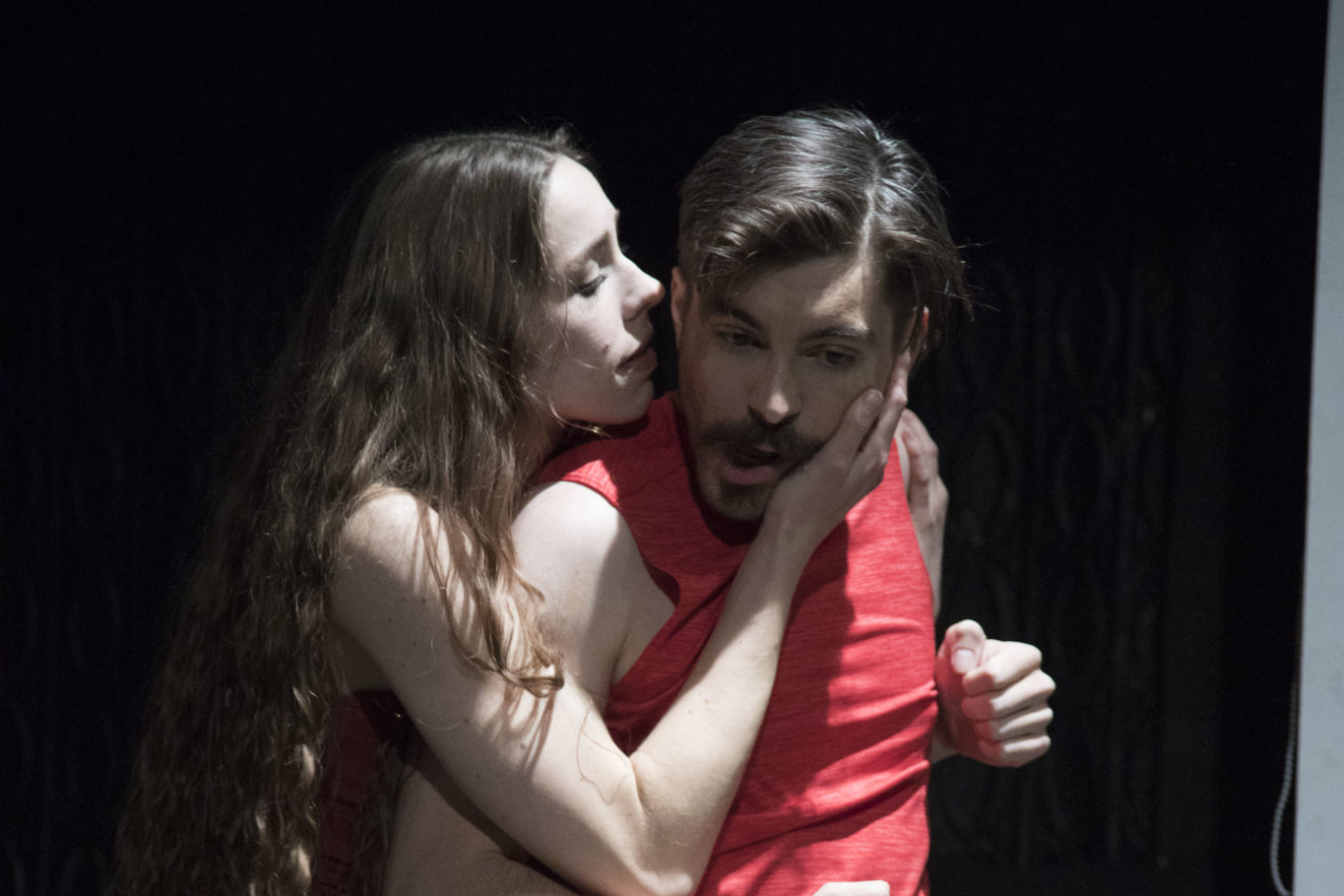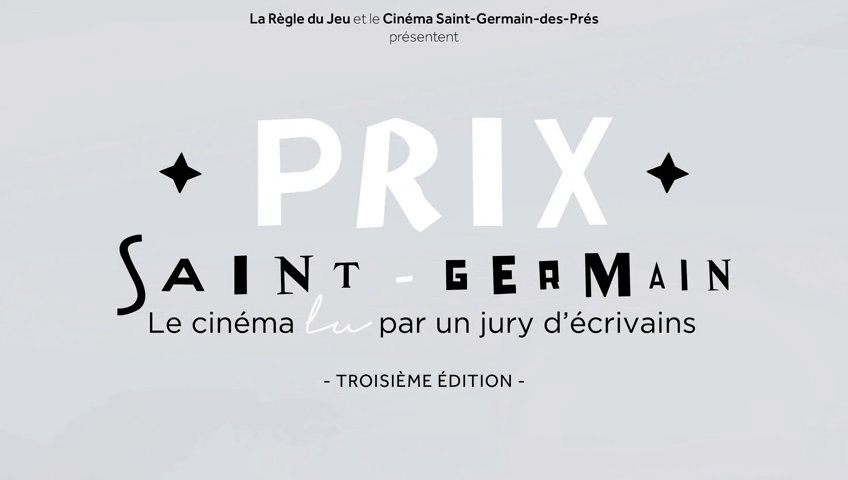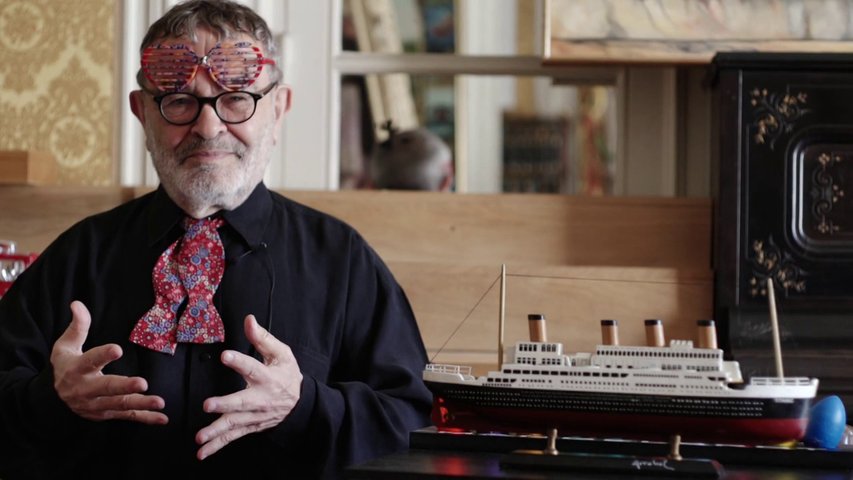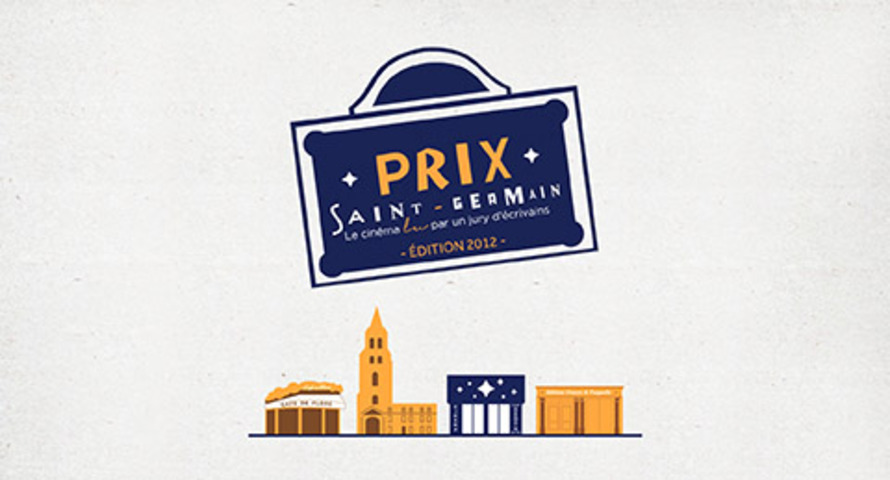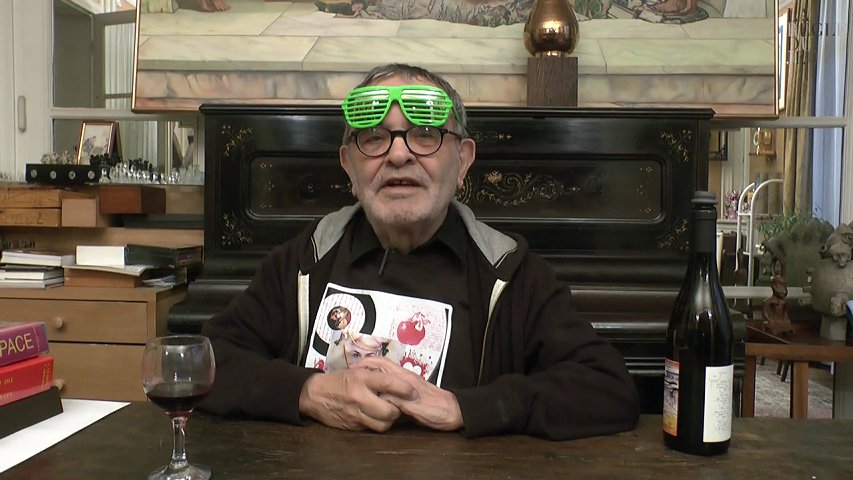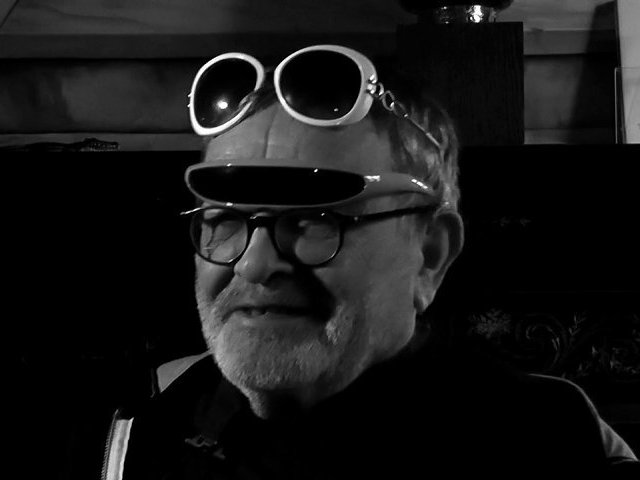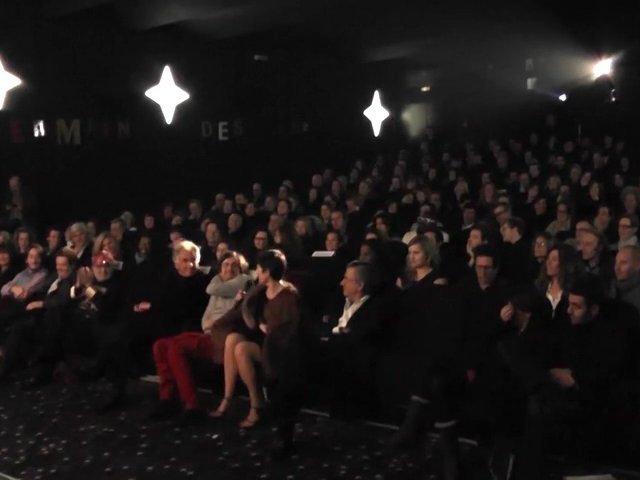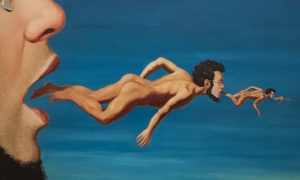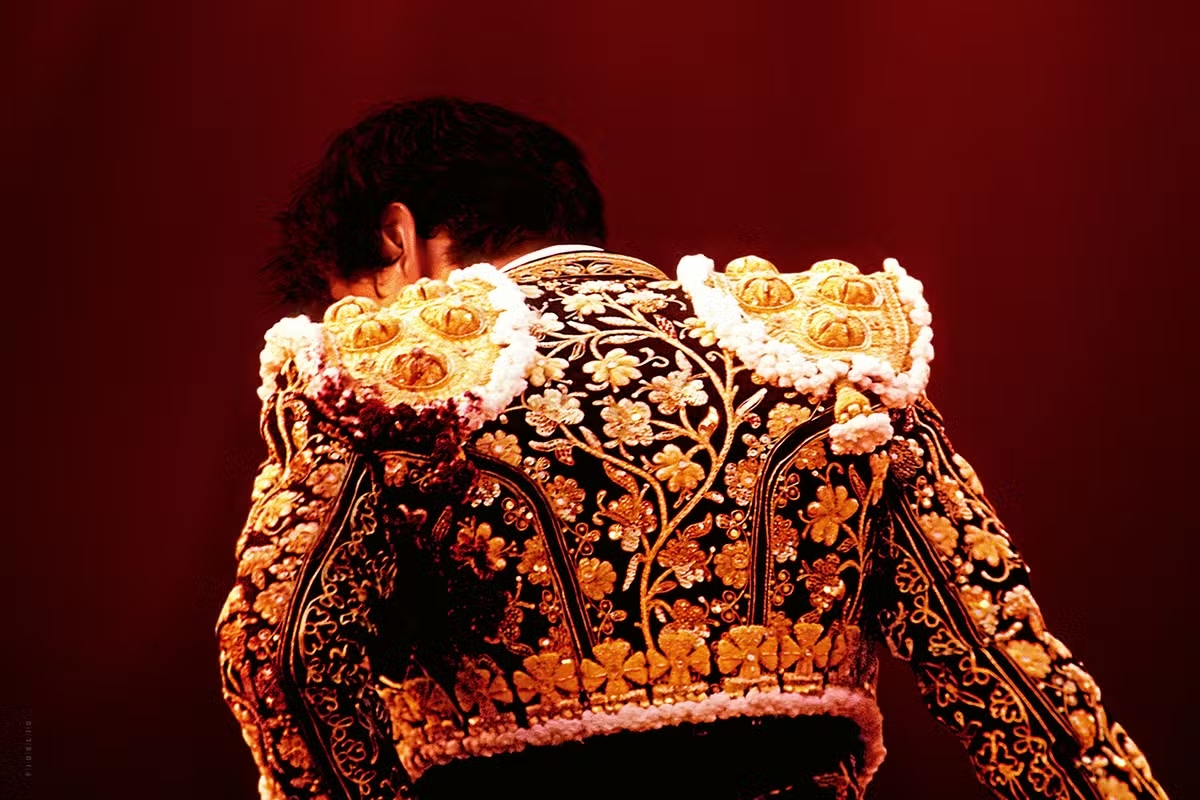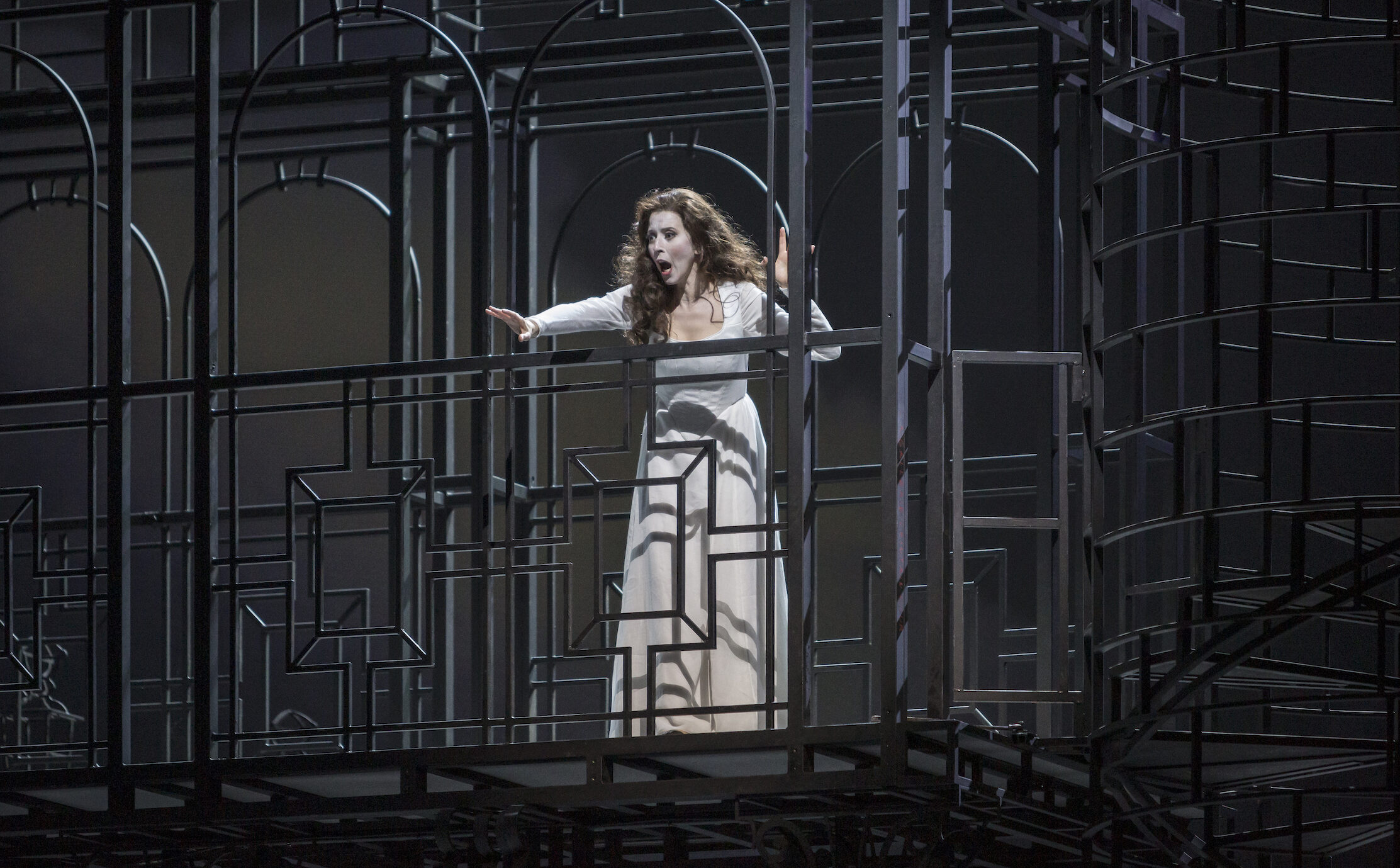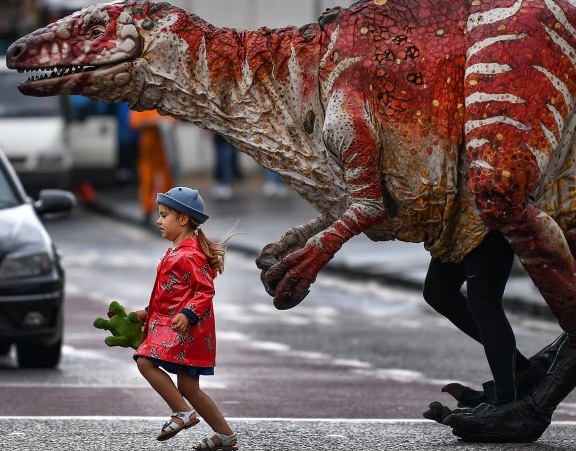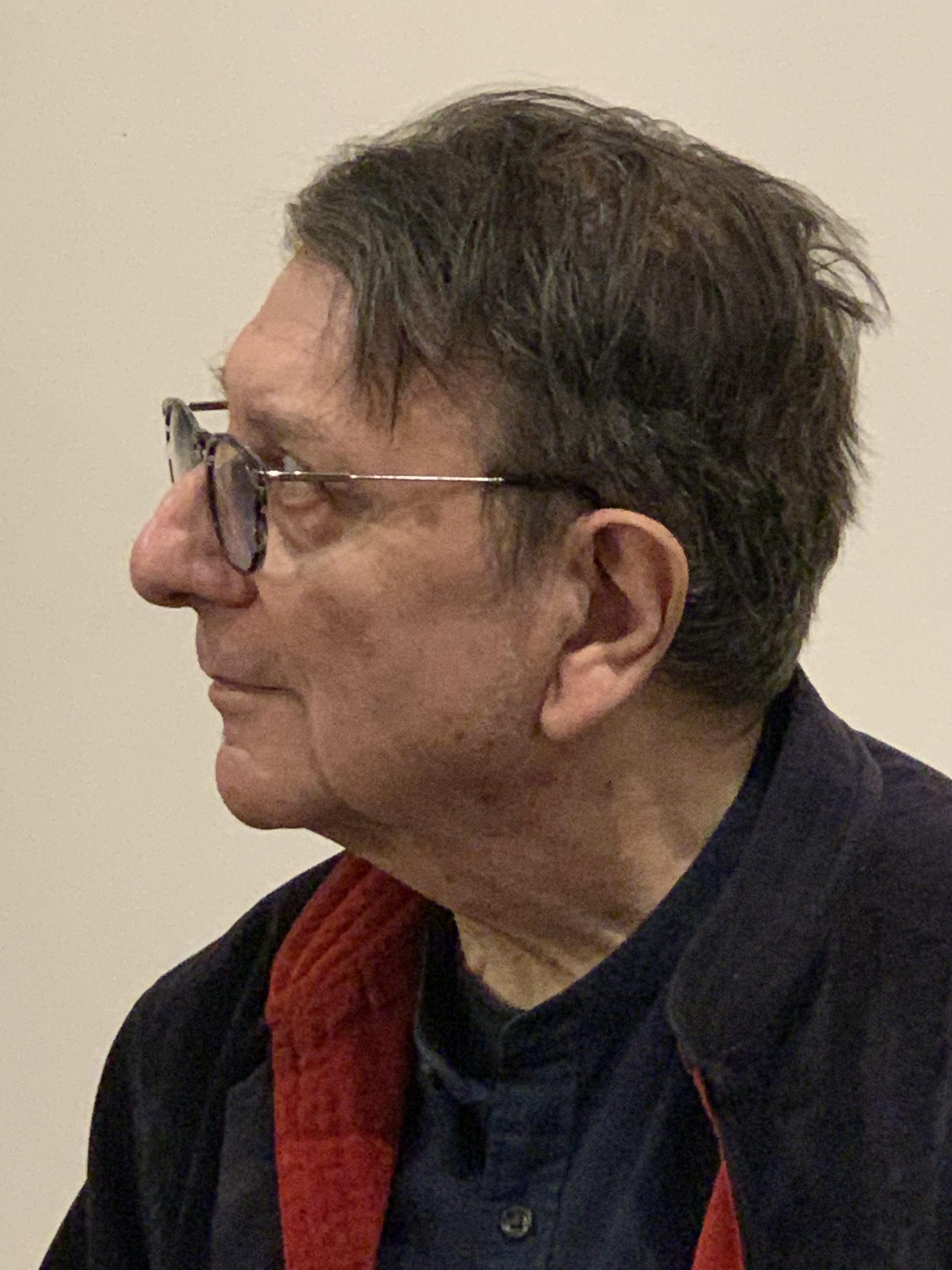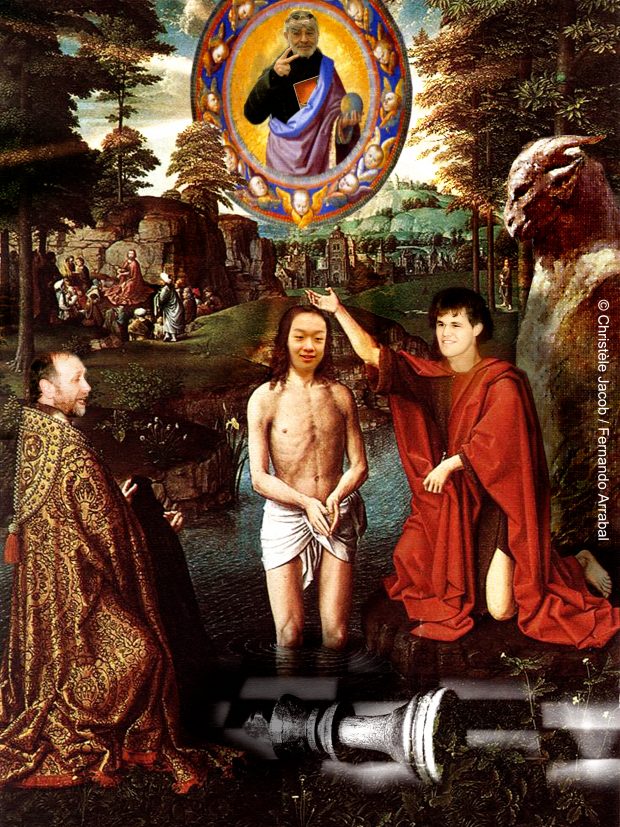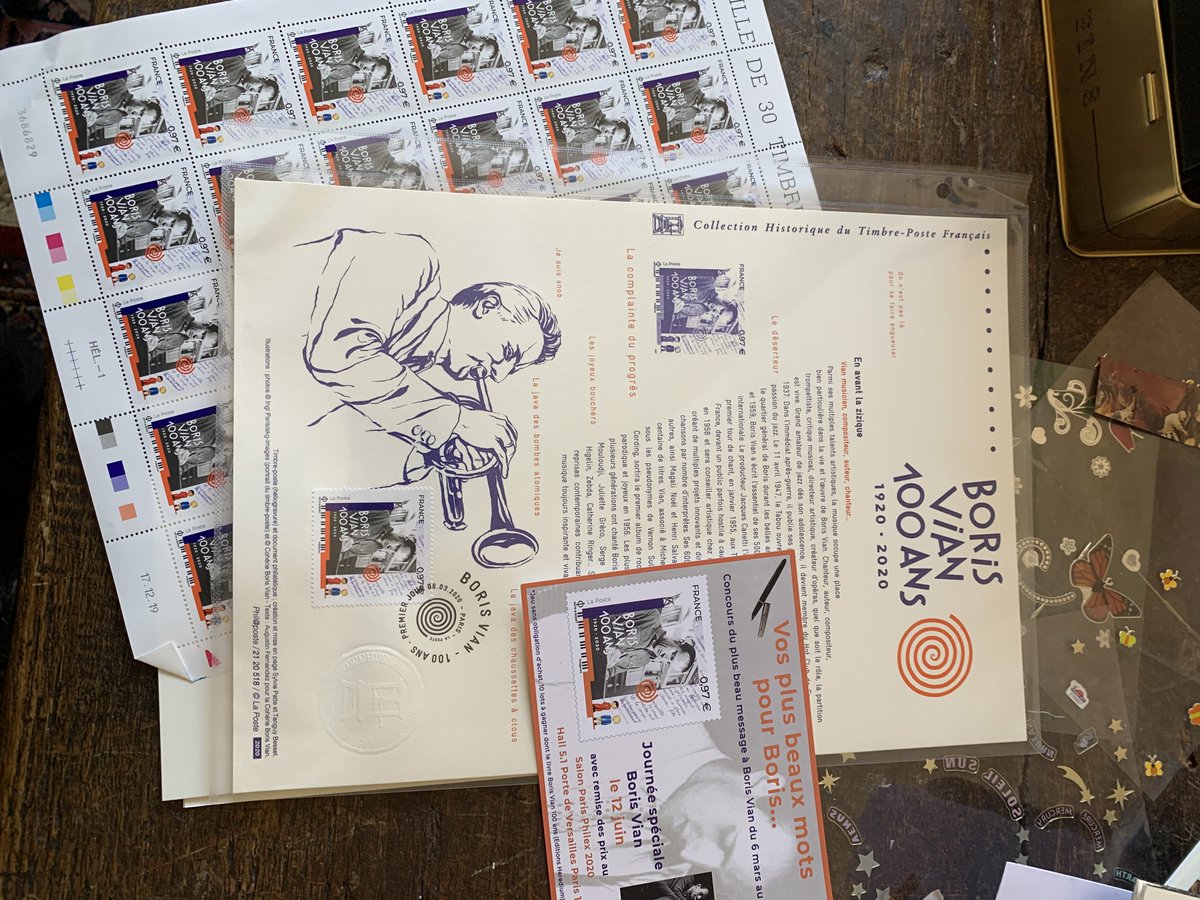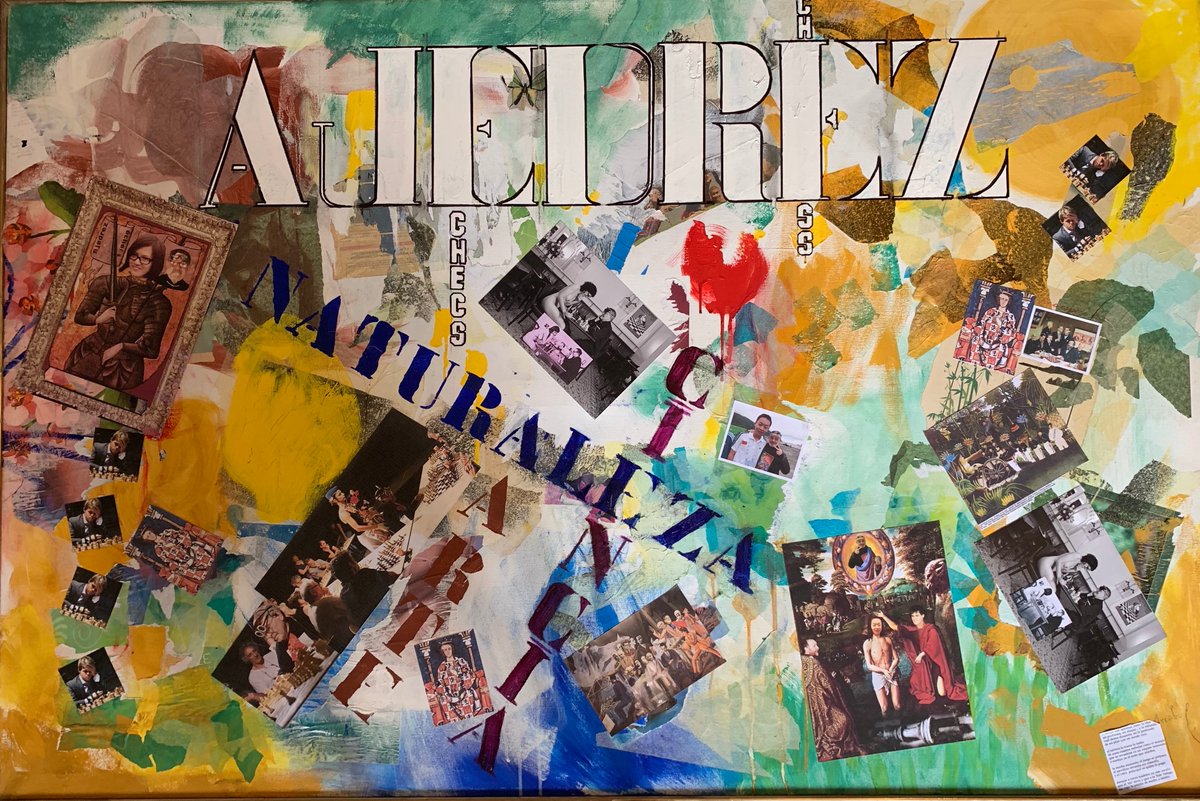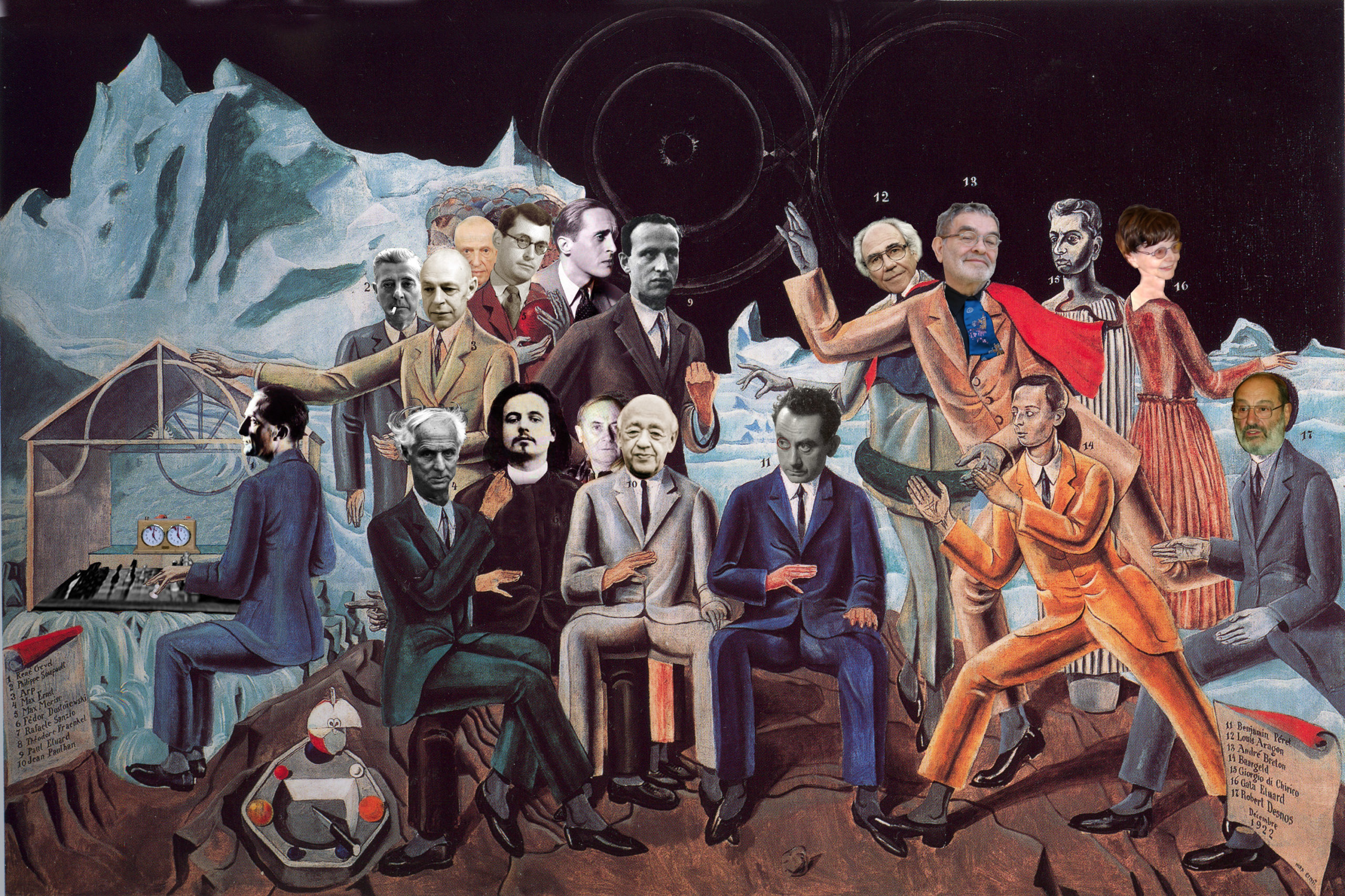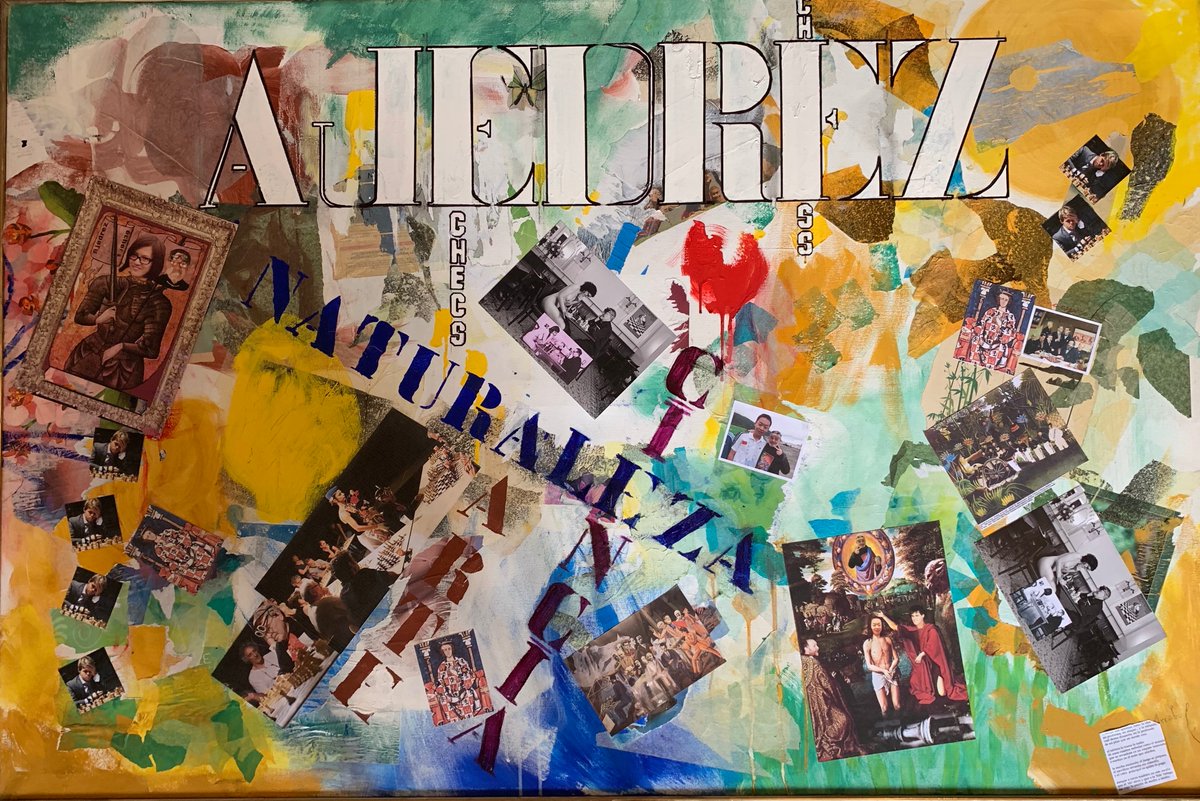D’après un article de Taryn Smith.
Letter of love (the fundamentals of judo) by Fernando Arrabal and Yves Klein
Walking into the space at Trap Door Theatre the first thing we see is the actors warming up. We know instantly this is not going to be a typical theatre experience. We won’t try to pretend that there are not actors in this play. Instead we know that there are, and yet still find ourselves invested in their emotional journey. This is not what tends to be expected for mainstream American theatre. We let go of our preconceived notions and expectations. While extreme realism can be effective, the lack of it creates entirely new possibilities and gives the audience a truly unique experience.
Letter of Love (The Fundamentals of Judo) combines text from two different Avant-garde artists living in Paris in the ‘60s. The words of Fernando Arrabal—playwright, novelist and filmmaker— and Yves Klein—a painter and performance artist— blend together to explore a generation of young people coping with the horrors of an era filled with atomic bombs and concentration camps. While they grapple with the past, they must also examine their relationships with their mothers. We witness several judo matches as our young artists literally and figuratively fight through their pasts and search for new ways to move forward. Devised and directed by the skillful Aleksi Barrière, the text showcases each artist’s unique point of view and combines them in a way that is both seamless and fascinating. We see the cross-discipline melding of the arts that creates something entirely new.
The set—by designer Samantha Meng Shui—is a skeletal house with three screens on the back that move through the piece with the actors. The use of shadows on the screens is particularly effective. Occasionally we are seeing a larger than life shadow and other times we see a person separated from us by a barrier. From this reviewer’s perspective, Lighting designer Richard Norwood’s use of striking color is also very effective at highlighting some of the more emotionally intense sections. Again, without the all too common strains of attempting realism, the use of color can be more exploratory and free.
The tightknit ensemble-comprised of Marzena Bukowska, Halie Ecker, Mike Steele and Bob Wilson– flawlessly shift characters throughout the piece. They handle the text with ease, one moment making us laugh and in the next cry. They also do some incredible movement work, including the well-staged judo fights. Although ,at moments, the constant shifting of characters left this writer a bit confused.
The soundscape of Letter of Love is also unique. The set includes a section of unexpected instruments that amplify the show. Cast member Mike Steele also served as sound designer and created something surprising and impactful.
Letter of Love is perfect for anyone looking for adventurous new theatre. In particular, this production is a good match for artists of all persuasions who wish to be inspired to create bold new pieces to try to understand the world around them. For most of us, this piece will challenge what you thought theatre should be, and show you all the possibilities it truly has.
